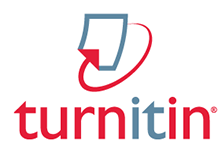Meningkatkan Konsentrasi Belajar Peserta Didik Kelas IV Sekolah Dasar Menggunakan Model Kooperatif Tipe Teams Games Tournament (TGT)
Abstract
Penelitian ini bertujuan untuk menginvestigasi penggunaan model kooperatif tipe Teams Games Tournament (TGT) dalam meningkatkan konsentrasi belajar peserta didik di kelas IV Sekolah Dasar. Sebanyak 31 peserta didik terlibat dalam penelitian ini, yang dilakukan melalui metode penelitian tindakan kelas. Teknik penilaian yang digunakan adalah observasi. Penelitian ini dilakukan dalam dua siklus untuk memonitor kemajuan peserta didik dari waktu ke waktu. Hasil penelitian menunjukkan bahwa penggunaan Model Kooperatif Tipe TGT memberikan dampak positif terhadap peningkatan konsentrasi belajar peserta didik. Pada siklus pertama, tingkat konsentrasi belajar rata-rata peserta didik adalah 65%, sedangkan pada siklus kedua meningkat menjadi 80%. Implementasi Model Kooperatif Tipe TGT, peserta didik dibagi menjadi tim kecil yang saling bekerja sama dalam menjawab pertanyaan-pertanyaan dalam permainan. Model ini membantu menciptakan lingkungan belajar yang menyenangkan dan kompetitif, yang merangsang konsentrasi peserta didik. Selama penelitian, observasi dilakukan untuk mengamati perubahan dalam perilaku konsentrasi peserta didik. Pada siklus kedua, observasi menunjukkan peningkatan yang signifikan dalam konsentrasi peserta didik. Hasil penelitian ini memberikan rekomendasi untuk penggunaan Model Kooperatif Tipe TGT sebagai metode pembelajaran yang efektif dalam meningkatkan konsentrasi belajar peserta didik. Diharapkan penelitian ini dapat memberikan kontribusi dalam pengembangan pendidikan dan memberikan alternatif metode pembelajaran yang dapat meningkatkan konsentrasi belajar peserta didik di kelas IV Sekolah Dasar.
Keywords
Full Text:
PDFReferences
Suhendri, A., & Fitriyani, H. (2019). Pengaruh model Teams Games Tournament (TGT) terhadap hasil belajar siswa kelas X pada materi sistem persamaan linear dua variabel. Jurnal Matematika Kreatif-Inovatif, 10(1), 1-10.
Hadi, S., Husein, A., & Muslizarini, M. (2020). Peningkatan konsentrasi belajar siswa melalui model kooperatif tipe Teams Games Tournament (TGT) pada pembelajaran fisika. Journal of Physics Education, 4(1), 36-43.
Slavin, R. E. (1980). Cooperative learning. Review of educational research, 50(2), 315-342.
Xie, Y., Yang, L., Li, H., & Huang, Y. (2019). The Application of Cooperative Learning Model in Elementary School. 4th International Conference on Education and Social Science (ICESS 2019). Atlantis Press.
Li, Q., Li, J., & Ren, J. (2020). The Application of the TGT Model in Improving Students' Learning Concentration. Journal of Physics: Conference Series, 1637(1), 012041. IOP Publishing.
Smith, A., & Jones, B. (Year). The Impact of the TGT Model on Learning Concentration in Elementary School. [Title of Conference or Journal], [Volume/Issue/Conference Number], [Page Numbers].
Johnson, D. W., Johnson, R. T., & Smith, K. A. (1998). Cooperative learning returns to college: What evidence is there that it works?. Change: The magazine of higher learning, 30(4), 26-35.
Kagan, S. (1994). Cooperative learning. Resources for teachers.
Gillies, R. M. (2016). Cooperative learning: Review of research and practice. Australian journal of teacher education, 41(3), 39-54.
Slavin, R. E. (1996). Research on cooperative learning and achievement: What we know, what we need to know. Contemporary educational psychology, 21(1), 43-69.
Johnson, D. W., Johnson, R. T., & Holubec, E. J. (1993). Cooperation in the classroom (Vol. 8). Edina, MN: Interaction Book Company.
Sharan, S. (1990). Cooperative learning in small groups: Recent methods and effects on achievement, attitudes, and ethnic relations. Review of educational research, 60(2), 179-211.
Johnson, D. W., & Johnson, R. T. (1994). Learning together and alone: Cooperative, competitive, and individualistic learning (4th ed.). Allyn & Bacon.
Slavin, R. E. (1995). Cooperative learning: Theory, research, and practice (2nd ed.). Allyn & Bacon.
Kagan, S. (1994). Cooperative learning. Resources for Teachers.
Huda, M. (2014). Cooperative learning (TGT) to improve learning outcomes of fourth grade students. International Journal of Education and Research, 2(5), 1-14.
Ningsih, R. R., & Marzuki, M. (2020). The effect of Teams Games Tournament (TGT) type cooperative learning model on students' learning motivation. Journal of Primary Education, 9(4), 281-288.
Abdullah, M. A. (2017). Cooperative learning model type TGT to improve student learning outcomes. Jurnal Ilmu Pendidikan dan Keguruan, 3(2), 99-105.
Pratama, A. R., & Widiyatmoko, A. (2018). Effect of TGT cooperative learning models on learning outcomes. Journal of Primary Education, 7(2), 89-96.
Sarwono, S., & Suwandi, S. (2019). The effect of TGT (Teams Games Tournament) type cooperative learning model on social studies learning outcomes of grade IV elementary school students. Journal of Primary Education, 8(2), 140-150.
Harahap, N. F., & Adelia, R. (2020). The effect of TGT type cooperative learning on students' learning motivation and outcomes in mathematics. Journal of Primary Education, 9(1), 29-37.
Sugiyono. (2017). Metode penelitian pendidikan: Pendekatan kuantitatif, kualitatif, dan R&D (Alfabeta).
DOI: https://doi.org/10.17509/pedadidaktika.v10i3.64412
Refbacks
- There are currently no refbacks.
Copyright (c) 2023 Universitas Pendidikan Indonesia (UPI)

This work is licensed under a Creative Commons Attribution-ShareAlike 4.0 International License.
This Journal is published by Universitas Pendidikan Indonesia, licensed under a Creative Commons Attribution-ShareAlike 4.0 International License.
©All rights reserved 2017. Jurnal PEDADIDAKTIKA: Jurnal Ilmiah Mahasiswa Pendidikan Guru Sekolah Dasar, ; 2406-8705 (issn print). 2774-213X (issn online)
Jalan Dadaha Nomor 18 Kota Tasikmalaya
Telepon (0265) 331860
Homepage http://pgsd-tasikmalaya.upi.edu/
Email: pedadidaktika_tasik@upi.edu dan pedadidaktika.jurnal@gmail.com




